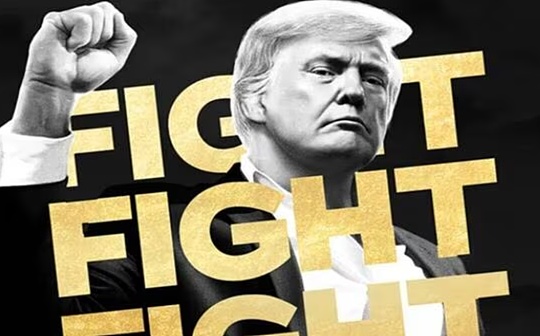Big change! Trump signs encryption executive order to establish digital asset reserve, SEC revokes SAB 121

Reprinted from chaincatcher
01/24/2025·5MAuthor: Weilin, PANews
On January 23, local time, on his third day in office, Trump signed an executive order " Strengthening U.S. Leadership in Digital Financial Technology. " The order proposes the establishment of a “President’s Working Group on Digital Asset Markets” to explore federal regulatory measures for stablecoins and related options for the national digital asset reserve, and explicitly prohibits the “establishment, issuance, circulation, or use” of central bank digital currencies (CBDC). .
At the same time, the U.S. Securities and Exchange Commission (SEC) announced the revocation of Employee Accounting Bulletin 121 (SAB 121), which has been criticized in the crypto industry.
Although it is unclear whether certain laws and policies implemented by the President of the United States through executive orders will be rejected by the courts, Trump has fulfilled many of his promises at the Bitcoin Conference in July last year and is expected to almost completely overturn the previous Encryption regulatory model.
Crypto Executive Order: Establishes Presidential Working Group to Assess
National Digital Asset Reserves

The executive order begins by explaining the purpose and policy, stating that “the digital asset industry plays a key role in the innovation and economic development of the United States, and is also related to the United States’ international leadership. Therefore, the policy of this administration is to support digital assets, blockchain Responsible growth and application of blockchain technology and related technologies in all sectors of the economy.”
Highlights of the executive order include:
- Protect and facilitate the ability of citizens and private sector entities to lawfully access and use open public blockchain networks, including the ability to develop and deploy software, participate in mining and verification, and conduct transactions with others without unlawful scrutiny, and the ability to maintain self-custody of digital assets.
- Promote the global development of legal and compliant USD-backed stablecoins.
- Protect and promote the rights of all law-abiding citizens and private sector entities to fair and open access to banking services.
- Provide regulatory clarity and certainty based on the principle of technology neutrality, build a framework to adapt to emerging technologies, transparent decision-making processes and clear boundaries of regulatory authority.
- Except as required by law, any institution is prohibited from taking actions to establish, issue, or promote CBDC within the United States or abroad. Immediately terminate any agency’s existing plans or actions related to the creation of a CBDC.
- Revoke the Executive Order "Ensuring the Responsible Development of Digital Assets" issued on March 9, 2022; instruct the Secretary of Finance to immediately revoke the "International Participation Framework for Digital Assets" issued by the Ministry of Finance on July 7, 2022.
- Establish a Presidential Working Group on Digital Asset Markets within the National Economic Council. The working group is led by the Special Advisor on Artificial Intelligence and Cryptocurrency. In addition to the special adviser, members include the Secretary of the Treasury, the Attorney General, the Secretary of Commerce, the Chairman of the Securities and Exchange Commission, the Chairman of the Commodity Futures Trading Commission (CFTC), etc.
In addition, the order requires that within 30 days from the date of issuance, the Ministry of Finance, the Ministry of Justice, the Securities and Exchange Commission and other relevant agencies should identify all regulations, guidance documents, etc. that affect the digital asset industry. Within 60 days, each agency submits proposed changes to the special advisor. The working group is required to submit a report to the President within 180 days, proposing regulatory and legislative recommendations to advance the policies of this order, including: (i) recommending a federal regulatory framework for the issuance and operation of digital assets (including stablecoins) in the United States; (ii) Assess the potential for creating a national digital asset reserve and propose criteria for establishing such a reserve.
Trump has fulfilled most of his crypto promises
So far, Trump has delivered on most of his crypto promises. Ordering federal agencies to halt any potential CBDC development was one of the promises Trump made to the crypto industry during his presidential campaign. Recently, Trump also fulfilled his promise to pardon Ross Ulbricht, the founder of "Silk Road". On January 20, Gary Gensler officially resigned, effectively fulfilling Trump’s promise to “fire Gary Gensler on his first day in office.”

But since taking office, Trump has yet to comment on fulfilling his promise that "all Bitcoin should be 'Made in the USA.'"
Although Trump advances policies through executive orders, their effectiveness may also face some procedural implications. For example, on January 20, Trump signed an executive order that essentially abolished birthright citizenship under the Fourteenth Amendment to the U.S. Constitution, but this move was later deemed "manifestly unconstitutional" by a federal judge. Prevent.
U.S. SEC officially revokes crypto accounting policy SAB 121
At the same time as the White House issued the executive order, the SEC was also working to reverse its previous encryption regulatory model.
On January 24, the U.S. Securities and Exchange Commission (SEC) issued a new Employee Accounting Bulletin, announcing the withdrawal of the controversial SAB 121. “Staff reminds entities that existing disclosure requirements remain required to inform investors of an entity’s obligations regarding the custody of cryptoassets for others,” the announcement reads.
SAB 121 requires banks and other public companies to include customers’ crypto assets on their own balance sheets. SAB 122 "withdraws the previous interpretive guidance" and instead instructs companies to follow the rules of the Financial Accounting Standards Board (FASB) or the relevant provisions of the International Accounting Standards.
SAB 121, which has been controversial since its introduction in March 2022, was supported by former SEC Chairman Gary Gensler, who said the provision would protect investors in the event of bankruptcy. “What we actually found in bankruptcy courts over and over again was that cryptoassets were not assets that were immune to the risk of bankruptcy,” he told Reuters in a 2023 interview.
SAB 121 was released at the end of March 2022 to better protect investors, detailing how companies should account for custody services of crypto assets. Because of the risks unique to crypto-assets, the staff believes that companies should record a liability and corresponding asset on their balance sheet at fair value.
Simply put, if a bank holds $1 billion worth of Bitcoin in custody for customers, they must hold $1 billion in cash to offset this "liability" on their balance sheet. There is widespread concern in the cryptocurrency industry that it could prevent banks from custody of digital assets, excluding banks from the crypto market.
Last year, SAB 121 was the subject of the Congressional Review Act resolution, which passed Congress but was vetoed by then-President Biden. Today, the SEC has revoked the SAB 121 policy, marking a major change in the regulation of the encryption industry.
At present, after Trump signed the encryption executive order and the SEC announced the revocation of SAB 121, the US encryption regulatory landscape has reached a milestone. This series of measures has brought more regulatory clarity to the industry and also filled the market with new expectations for the future. The transformation will still take time. In addition, whether the Trump administration can continue to implement its commitments and how to further promote the digital asset reserve plan still deserves the industry's close attention.

 jinse
jinse

